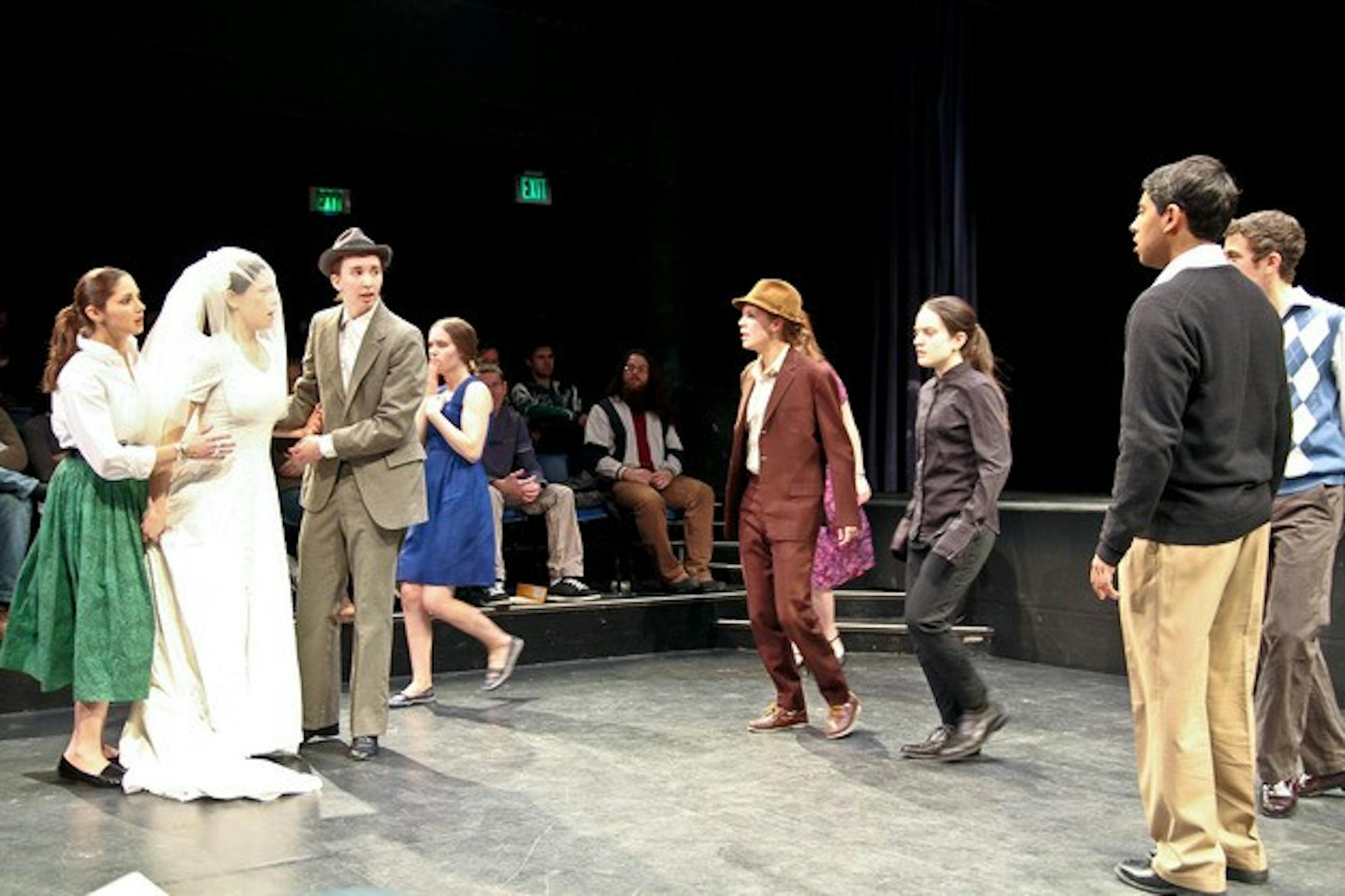Walking back from class on a cool fall day in 2008 on the theater Foreign Study Program in London, Chiara Klein '10, Jay Ben Markson '10 and David Mavricos '10 felt inspired. They had just read a particularly boring section of William Shakespeare's "Henry VI" in their Shakespearean Texts class, but had seen the words come to life, unfettered by props or costumes and despite the perception that Shakespeare is inaccessible to a modern audience.
"[The professor] took this scene from a mediocre play and broke it down showing us the complexity and motivation of all the characters," Markson said. "It was extraordinary we thought, we gotta do something like this."
As their term in London progressed, Klein, Markson and Mavricos, along with other students in the program, developed the idea to form a new theater group over cheap wine and long walks around the city. The group would become The Dartmouth Rude Mechanicals.
"We came back from London really wanting to try out this minimalistic, true-to-the-text version of Shakespeare," Markson said.
Upon returning to Dartmouth in Winter 2009, seven student actors from the FSP banded together to prepare a production of Shakespeare's "Twelfth Night." The students learned their lines over winter break and began rehearsing during Winter term after casting two more students in January.
The nine students held their debut performance that winter in Bentley Theater. They were not sure how their rendition would be received, but a broad audience including students and local families, Shakespeare enthusiasts and skeptics alike turned out for the first show. Afterwards, the actors were thrilled when some people who had attended said they loved the show despite not usually enjoying Shakespeare. Galvanized by inquiries about their next performance, the group began to entertain the notion of establishing a more permanent company.
They soon held auditions for new members and formally established The Rude Mechanicals as a theater company dedicated to performances of Shakespeare, driven by the original text and with as few props and costumes as possible. The name came from the group of day laborers who come together after work to perform a play within Shakespeare's "A Midsummer Night's Dream." The students liked the idea of creating a company a group of actors who consistently work together on different shows, rather than holding open auditions for each show because of the community and creative environment such an approach fosters.
In Fall 2009, The Rude Mechanicals applied for Council on Student Organizations recognition and were named "Best New Organization" by COSO that year.
The Rude Mechanicals have, since the beginning, been completely student-run. With their roster averaging about 15 actors in any given term, they have become a close-knit community, practicing late at night and in the rain to meet all the demands of successfully producing a performance on top of the performers' busy lives as students.
The group members take the company model to the next level, in what they jokingly refer to as "socialist Shakespeare." Everyone votes to cast roles in a play and actors bicker over how a scene should unfold. This is especially unique in a field that is generally hierarchical, where directors cast and direct the actors.
"Anyone could say anything at anytime, which was kind of a radical idea," Klein said. "What was born was this collaborative company model."
The Rude Mechanicals ascribe to a "bottom-up" method in which they take cues from the texts to discover the character that Shakespeare intended. This, they insist, is why elaborate direction and production is not necessary. They see Shakespeare as a universal and comprehensive language, which makes their job as actors to clearly convey the story in its original form.
"There's sort of been this conception that Shakespeare by itself isn't enough anymore [that] you have to change it and put all this flair around it," member Bill Calder '12 said. "We believe that the text itself is enough."
Klein is now applying the company's model in her post-graduation work. Last summer she founded MaineStage Shakespeare a theater company based in Maine that embodies many of the same principles as The Rude Mechanicals.




